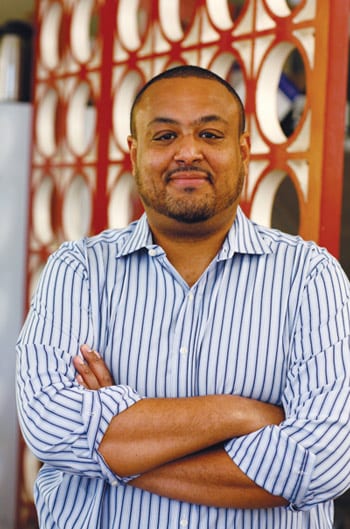
On a sunny afternoon in Harlem, Amaha Kassa rallies a crowd in support of a New York bill that would provide financial aid for undocumented students. It’s a proud moment to see his fellow black immigrants united for a cause that impacts them. But, all in a day’s work for the founding director of African Communities Together (ACT).
Kassa was born in Ethiopia shortly before the country’s civil war in the mid-1970s. His father, a government minister, was executed after the monarchy was overthrown. Kassa and his sisters were brought to the United States while their mother remained imprisoned until 1987.
With a support network of family and friends, Kassa adapted well. But for many African immigrants, the transition is difficult. “It can be very isolating,” Kassa says. “They lose their financial base, professional status, social and cultural standing—even basic services, due to language barriers.” When Kassa began working with an East Bay nonprofit rights group, he saw vibrant organizations working on behalf of Latino, Asian, and Arab immigrants—but none helping Africans. “I assumed somebody else would build it and I’d just go work there,” he says.
Kassa applied to the Berkeley Law–Harvard Kennedy School of Government joint JD/MPP program, eager to parlay his legal training into supporting African immigrants. In 2012, he received the inaugural Black Male Achievement Fellowship from the Open Society Foundation and Echoing Green to help launch ACT in Harlem. Because New York City does not currently offer many of its critical services and resources in French, which is commonly spoken in many African nations, one of ACT’s primary focuses is bridging that language gap. Kassa’s team provides community interpreting, legal services, and assistance with immigration issues, jobs, health care, housing, taxes, and education.
“We try to reach people at bus stops, restaurants, hair-braiding salons, churches, mosques, and festivals—instead of waiting for them to have an urgent situation and not know where to turn,” he says.
Kassa has worked with the New York City Mayor’s Office of Immigrant Affairs to improve language access, and recently helped convince the Obama Administration to extend Temporary Protected Status for West African nationals from countries afflicted by Ebola.
In addition to monthly membership meetings, ACT hosts leadership training sessions and town hall gatherings on relevant social and political issues, such as President Obama’s executive actions on immigration. Based on the growing turnout, Kassa’s vision is coming to life.
“It’s incredibly powerful to watch how the experience of connecting to a community transforms people,” he says.
—Rachel DeLetto
